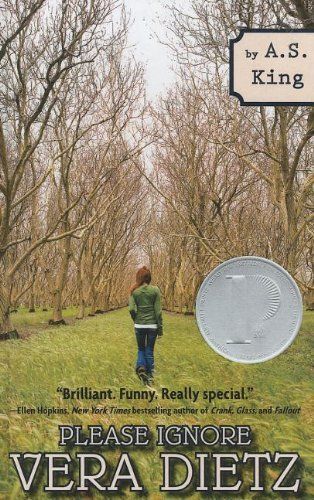

King did a good job of making him a bit stunted, but it's still hard to believe they'd have so many heavy kissing sessions in a car and never take it further.Vera Dietz has been in love with her best friend Charlie for as long as she can remember. And how much more difficult would it have been for her to tell the police without having physical evidence? How much more of a sacrifice? And finally, with respect to King's deliberate "trimming" of darkness: 4. I wanted Vera to have an uncomfortable sex experience with James. And belatedly, he gets to voice his feelings to her, which is incredibly reassuring, and one of the pieces she needs to be able to get the courage to clear his name, but is maybe too pat in the form of a letter. I had thought all along that one of the reasons Vera was so conflicted about Charlie's death was perhaps that she hadn't been able to voice her feelings to him before he died. that Charlie was able to give her-in a neat, bulging yellow envelope-everything that she'd need to implicate John and Jenny. that Charlie was able to tell her he loved her via the napkin letter 3. that Vera was given an opportunity to open her heart to Charlie before he died and tell him how he hurt her ("You flew paper airplanes with them at the Pagoda you allowed them to carve their initials in the oak, etc.") 2. Four things nag at me as being "too-safe" choices: 1. Perhaps King felt protective about either our feelings as readers, or Vera's feelings as the main character. She wasn't willing to leave Vera with the uncertainty that life really has. In the end I felt that King wasn't willing to go as full bore with the darkness as the story needed. King also did a great job of showing how Charlie's life would be nearly impossible for a child to survive intact, and how he slowly lost control. Vera's parents were stunted (let's not even mention Charlie's parents), so that Vera was left too much on her own to develop both a philosophy about her life and personal strength (something that's hard to do with no guidance). it was a small town and perhaps oppressively narrow-minded, and 2. Yes, when her classmates finally found out her secret her life was hell for a couple of weeks, but was that really a strong enough motivator, to be the sole and driving force in her adolescence? It's a small flaw, though, because I think King tried hard to show that 1.

Vera's personal conflict-not wanting the kids at school to discover that her mom was a stripper (for only two months), and not wanting herself to become a slut or to have a baby out of wedlock-was just slightly weak for the strength of the rest of the plot, particularly given how brilliant and perceptive King made Vera.


 0 kommentar(er)
0 kommentar(er)
